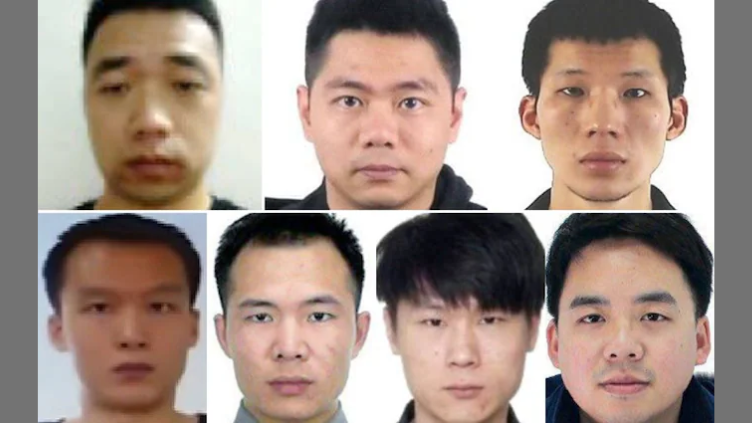China Encourages Armed Offensive Against Myanmar Over Slave Scam Centres
At least one country recognizes that the fight against scamming requires military intervention.
Authors:
• SCARS Editorial Team – Society of Citizens Against Relationship Scams Inc.
• United Nations Office of Drugs and Crime
About This Article
In response to Myanmar’s failure to address the proliferation of online scams, China lends support to an armed offensive against the military junta in Myanmar.
Named Operation 1027, the offensive was executed by the Three Brotherhood Alliance, severely challenging the Tatmadaw’s control.
China’s dissatisfaction stemmed from the exploitation of Chinese citizens by scam centers in Myanmar. Despite calling for a ceasefire post-operation, China prioritized the handover of scam suspects over pressuring armed groups to cease operations.
The strategic maneuvering reveals China’s leverage over Myanmar’s regime, although it remains cautious about supporting the shadow government, emphasizing economic and diplomatic priorities.

China’s Strategic Moves in Myanmar: Unveiling the Battle Against Online Scams
Amidst the political turmoil in Myanmar following the military coup in February 2021, a recent United Nations report (see below for the report) sheds light on China’s involvement in the conflict, particularly concerning its stance on online scams proliferating from Myanmar. The Tatmadaw’s failure to address these scam centers, which predominantly target Chinese netizens, has prompted China to lend tacit support to armed offensives against the military junta.
Operation 1027, executed by the Three Brotherhood Alliance on October 27, 2023, received tacit approval from Beijing, marking a significant challenge to the junta’s control. The offensive, primarily targeting the Shan State along the China-Myanmar border, resulted in the overrun of numerous military outposts and the disruption of trade routes to China.
The underlying issue prompting China’s involvement is the rampant human trafficking and slave labor associated with online scam operations in Myanmar. A UN report revealed that as many as 120,000 individuals, mostly Chinese, have been trafficked and subjected to forced labor in Myanmar, with the Kokang zone emerging as a major hotspot for such criminal activities.
The scam centers lure victims with false promises of lucrative employment opportunities, only to subject them to exploitation and coercion in labor camps. Interpol has launched operations to combat human trafficking and slavery linked to these scams, highlighting the global ramifications of the issue.
China’s diplomatic focus following Operation 1027 has been on the extradition of scam suspects rather than pressuring armed groups to cease their operations. Despite calls for a ceasefire, China’s strategic interests in Myanmar give it considerable leverage over the military junta, ensuring the status quo remains intact.
However, China’s dissatisfaction with the junta does not translate into support for alternative factions, such as the National Unity Government (NUG). Beijing’s primary concern is to prevent the emergence of a Western-leaning regime that could potentially undermine its interests in the region.
As Myanmar continues to grapple with political instability and armed conflict, China’s role in the country’s affairs underscores the complex geopolitical dynamics at play and the challenges facing efforts to restore democracy and stability.
Please Rate This Article
Please Leave Us Your Comment
Also, tell us of any topics we might have missed.
Thank you for your comment. You may receive an email to follow up. We never share your data with marketers.
-/ 30 /-
What do you think about this?
Please share your thoughts in a comment above!
More Related Information:
- China Arrests 706 Chinese Scammers Involved In Phone & Internet Scams From Myanmar
- China Cracks Down On Scammers – Chinese – Myanmar Police Arrests 1207 Scammers In Myanmar
- China Cracks Down On Scammers – Chinese – Myanmar Police Arrests 269 Scammers In Myanmar
- China Cracks Down On Scammers – Chinese – Indonesia Police Arrests 88 Sextortion Scammers In Indonesia
- Cambodia’s Struggle Against Scam Slavery Scams: A Year After Crackdown, Scams Persist – 2024
-/ 30 /-
What do you think about this?
Please share your thoughts in a comment above!
SCARS LINKS: AgainstScams.org RomanceScamsNOW.com ContraEstafas.org ScammerPhotos.com Anyscam.com ScamsNOW.com
reporting.AgainstScams.org support.AgainstScams.org membership.AgainstScams.org donate.AgainstScams.org shop.AgainstScams.org
youtube.AgainstScams.org linkedin.AgainstScams.org facebook.AgainstScams.org
ARTICLE RATING
TABLE OF CONTENTS
CATEGORIES
MOST POPULAR COMMENTED ARTICLES
POPULAR ARTICLES
U.S. & Canada Suicide Lifeline 988
![NavyLogo@4x-81[1]](https://scamsnow.com/wp-content/uploads/2025/04/NavyLogo@4x-811.png)
ARTICLE META
WHAT PEOPLE ARE TALKING ABOUT LATEST SITE COMMENTS
See Comments for this Article at the Bottom of the Page
on Substance Abuse Susceptibility And Scam Victims – 2024: “It is understandable how some would feel that alcohol or substance abuse would be helpful in handling their feelings after…” Jul 1, 20:36
on Scam Victims Use Work To Avoid Healing: “The last 6 years have been the most difficult of my life. The pandemic, having both parents in the hospital…” Jun 29, 18:38
on Entitlement Mentality And How Scam Victims Often Lose Their Path To Recovery – 2024: “Thank you for this discussion of entitlement. I can see from the descriptions listed that I have not felt entitlement.…” Jun 29, 18:22
on Samurai Wisdom and Rituals for Clearing the Mind After Scam Trauma – 2025 – [VIDEOS]: “A great guide on how to move forward in our recovery process with a calm mind, cleansed on an ongoing…” Jun 28, 07:34
on Delayed Gratification and Patience in Scam Victim Recovery – 2025 – [VIDEOS]: “We want to recover quickly and… we make new mistakes. How not to speed up the recovery process, how to…” Jun 28, 06:41
on The Unique Injury Of Betrayal Trauma On Scam Victims – 2024: “Primarily because you did not see it coming” Jun 27, 23:57
on Changes In A Scam Victim’s Life: “I really detest the way my trust in others has been affected by the scamming I went through. I used…” Jun 27, 14:47
on The Unique Injury Of Betrayal Trauma On Scam Victims – 2024: “Betrayal Trauma is the worst feeling ever. Why does it seem so much worse when a scammer does that to…” Jun 27, 14:34
on EMDR Therapy For Scam Victims’ Trauma – A Part Of The Recovery Process For Many – 2024: “Very comprehensive article explaining all aspects of EMDR. I’d only heard of it before and now I have a much…” Jun 26, 19:01
on Forgiving Yourself After Surviving a Romance or Investment Scam – 2025: “Thank you for this valuable article. Self-forgiveness was for me the biggest step that led to my recovery. That also…” Jun 26, 17:28
on Counseling And Your Native Language: “These points make perfect sense. I can’t imagine trying to express complex emotions in a second language. I realize many…” Jun 26, 16:05
on Thought-Terminating Cliches – How What You and Others Say Stops Critical Thinking and Recovery for Scam Victims – 2025: “I didn’t realize that these “innocent phrases” clichés ending thoughts, can have such effect / negative -inhibiting / on our…” Jun 26, 14:48
on Scam Victim Resistance In Support Groups Therapy Or Counseling Can Destroy Opportunities For Recovery – 2024: “Working with either a support group or therapist to me means a self commitment to actively participating in the therapy.…” Jun 24, 21:01
on ‘I Just Want To Forget It’ – Denial & Avoidance Are Natural But Will Not Help Scam Victims On Their Path To Recovery From Scams – 2024: “My financial loss, the shock and betrayal of the crime ending all combined to fray my nerves and spend hours…” Jun 24, 20:10
on You Hate Being Told What To Do? How Your Rebellious Mentality Can Sabotage Your Recovery – 2025: “I am a bit of a rebel, and the moment someone tells me to do something, worse, does it even…” Jun 24, 15:04
on You Hate Being Told What To Do? How Your Rebellious Mentality Can Sabotage Your Recovery – 2025: “You are very welcome” Jun 24, 03:01
on You Hate Being Told What To Do? How Your Rebellious Mentality Can Sabotage Your Recovery – 2025: “This is a great article, which makes perfect sense as to why anyone would resist the help offered to them.…” Jun 23, 20:01
on Scam Victims’ Responsibilities – 2021 [Updated 2025]: “Thank you for this article. As I continue my journey, I focus on the here and now and let the…” Jun 21, 16:26
on Scam Victims Avoid Or Escape The Aftermath Of Scams – How Denial And Distraction Avoid Confronting Reality – 2024: “In the earliest days after my crime I felt powerless, helpless and weak. I had been through so much in…” Jun 21, 14:46
Important Information for New Scam Victims
Please visit www.ScamVictimsSupport.org – a SCARS Website for New Scam Victims & Sextortion Victims
SCARS Institute now offers a free recovery program at www.SCARSeducation.org
Please visit www.ScamPsychology.org – to more fully understand the psychological concepts involved in scams and scam victim recovery
If you are looking for local trauma counselors, please visit counseling.AgainstScams.org
If you need to speak with someone now, you can dial 988 or find phone numbers for crisis hotlines all around the world here: www.opencounseling.com/suicide-hotlines
Statement About Victim Blaming
Some of our articles discuss various aspects of victims. This is both about better understanding victims (the science of victimology) and their behaviors and psychology. This helps us to educate victims/survivors about why these crimes happened and not to blame themselves, better develop recovery programs, and help victims avoid scams in the future. At times, this may sound like blaming the victim, but it does not blame scam victims; we are simply explaining the hows and whys of the experience victims have.
These articles, about the Psychology of Scams or Victim Psychology – meaning that all humans have psychological or cognitive characteristics in common that can either be exploited or work against us – help us all to understand the unique challenges victims face before, during, and after scams, fraud, or cybercrimes. These sometimes talk about some of the vulnerabilities the scammers exploit. Victims rarely have control of them or are even aware of them, until something like a scam happens, and then they can learn how their mind works and how to overcome these mechanisms.
Articles like these help victims and others understand these processes and how to help prevent them from being exploited again or to help them recover more easily by understanding their post-scam behaviors. Learn more about the Psychology of Scams at www.ScamPsychology.org
SCARS INSTITUTE RESOURCES:
If You Have Been Victimized By A Scam Or Cybercrime
♦ If you are a victim of scams, go to www.ScamVictimsSupport.org for real knowledge and help
♦ Enroll in SCARS Scam Survivor’s School now at www.SCARSeducation.org
♦ To report criminals, visit https://reporting.AgainstScams.org – we will NEVER give your data to money recovery companies like some do!
♦ Follow us and find our podcasts, webinars, and helpful videos on YouTube: https://www.youtube.com/@RomancescamsNowcom
♦ Learn about the Psychology of Scams at www.ScamPsychology.org
♦ Dig deeper into the reality of scams, fraud, and cybercrime at www.ScamsNOW.com and www.RomanceScamsNOW.com
♦ Scam Survivor’s Stories: www.ScamSurvivorStories.org
♦ For Scam Victim Advocates visit www.ScamVictimsAdvocates.org
♦ See more scammer photos on www.ScammerPhotos.com
You can also find the SCARS Institute on Facebook, Instagram, X, LinkedIn, and TruthSocial
Psychology Disclaimer:
All articles about psychology and the human brain on this website are for information & education only
The information provided in this and other SCARS articles are intended for educational and self-help purposes only and should not be construed as a substitute for professional therapy or counseling.
Note about Mindfulness: Mindfulness practices have the potential to create psychological distress for some individuals. Please consult a mental health professional or experienced meditation instructor for guidance should you encounter difficulties.
While any self-help techniques outlined herein may be beneficial for scam victims seeking to recover from their experience and move towards recovery, it is important to consult with a qualified mental health professional before initiating any course of action. Each individual’s experience and needs are unique, and what works for one person may not be suitable for another.
Additionally, any approach may not be appropriate for individuals with certain pre-existing mental health conditions or trauma histories. It is advisable to seek guidance from a licensed therapist or counselor who can provide personalized support, guidance, and treatment tailored to your specific needs.
If you are experiencing significant distress or emotional difficulties related to a scam or other traumatic event, please consult your doctor or mental health provider for appropriate care and support.
Also read our SCARS Institute Statement about Professional Care for Scam Victims – click here
If you are in crisis, feeling desperate, or in despair, please call 988 or your local crisis hotline.
More ScamsNOW.com Articles
A Question of Trust
At the SCARS Institute, we invite you to do your own research on the topics we speak about and publish. Our team investigates the subject being discussed, especially when it comes to understanding the scam victims-survivors’ experience. You can do Google searches, but in many cases, you will have to wade through scientific papers and studies. However, remember that biases and perspectives matter and influence the outcome. Regardless, we encourage you to explore these topics as thoroughly as you can for your own awareness.















![scars-institute[1]](https://scamsnow.com/wp-content/uploads/2025/04/scars-institute1.png)
![niprc1.png1_-150×1501-1[1]](https://scamsnow.com/wp-content/uploads/2025/04/niprc1.png1_-150x1501-11.webp)

Leave a Reply